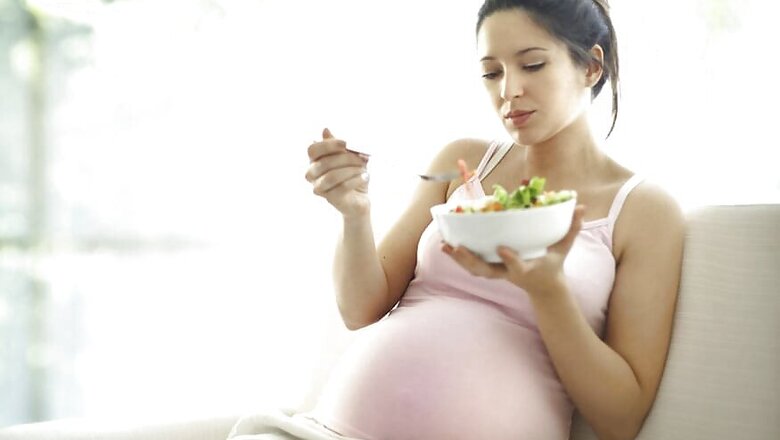
views
Eating disorders affect millions of people around the world every year, including new mothers or soon-to-be mums. Now, a new study, conducted by Karolinska Institute and published in JAMA Psychiatry has suggested that "mums-to-be who have eating disorders are up to 70 per cent more likely to have premature babies."
According to the study that looked at data from 1.2 million mums, researchers also reached the conclusion that children born to such women were more likely to have microcephaly, a condition that is associated with a small head circumference. Nutritional deficiencies and stress hormones associated with eating disorders were the probable causes for the babies' growth problems, Daily Mail cited researchers in the report as saying.
Study authors opined that pregnant women who suffer from anorexia and bulimia should have more frequent doctor appointments during pregnancy. The study looked at 2,800 pregnant women with anorexia and 1,400 with bulimia as well as 3,400 with an unspecified eating disorder (ENDOS) to come to the conclusion.
The study showed that all types of eating disorders caused an increase in the risk of premature birth, microcephaly and extreme nausea and vomiting during pregnancy.
According to the study, the risk of preterm birth for women with anorexia was 60 per cent, while it was 30 per cent for bulimia and 40 per cent for ENDOS. They also found that women who suffered from ENDOS had 70 percent increased risk of an extreme preterm birth.
Study authors also arrived at the conclusion that maternal anorexia led to a two-fold risk of birthing a baby with microcephaly and the risk of anemia was twice as high for women with active anorexia or ENDOS.
According to the report, active anorexia also led to an increased risk of antepartum haemorrhage. Researchers revealed that the possibility of the conditions increased if women were battling eating disorders at time of pregnancy. However, they said that a diagnosis which was a year earlier did not lessen the risk, when compared to women who did not have the disorder.
Speaking about the revelations made during the study, co-author Dr Ängla Mantel revealed that women with eating disorders should be viewed as "high-risk" among pregnant women and there is a need for care providers to develop better methods to identify women with eating disorders.
Follow @News18Lifestyle for more



















Comments
0 comment